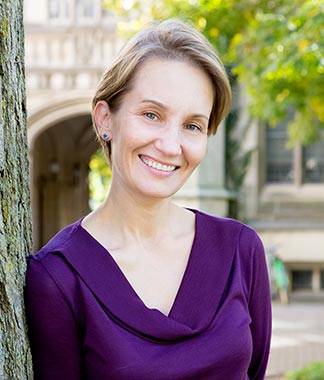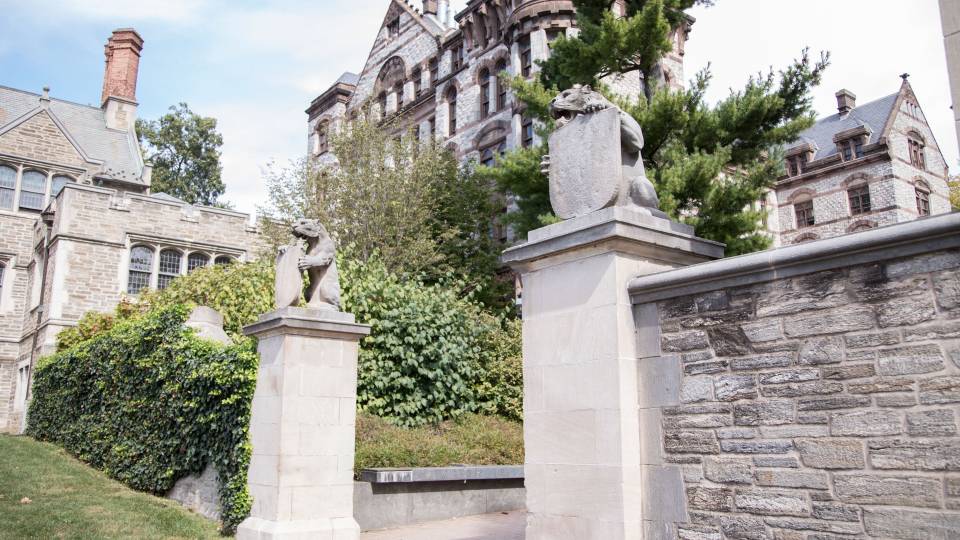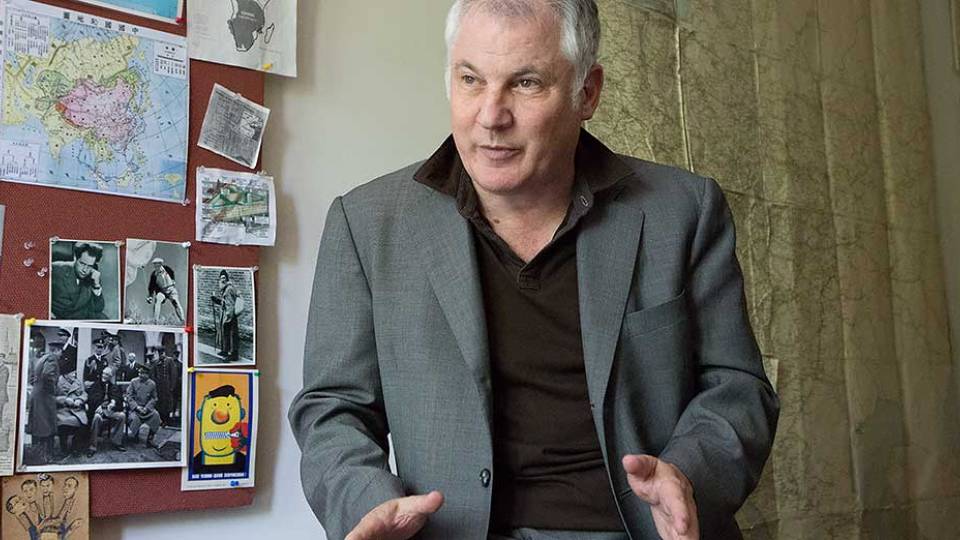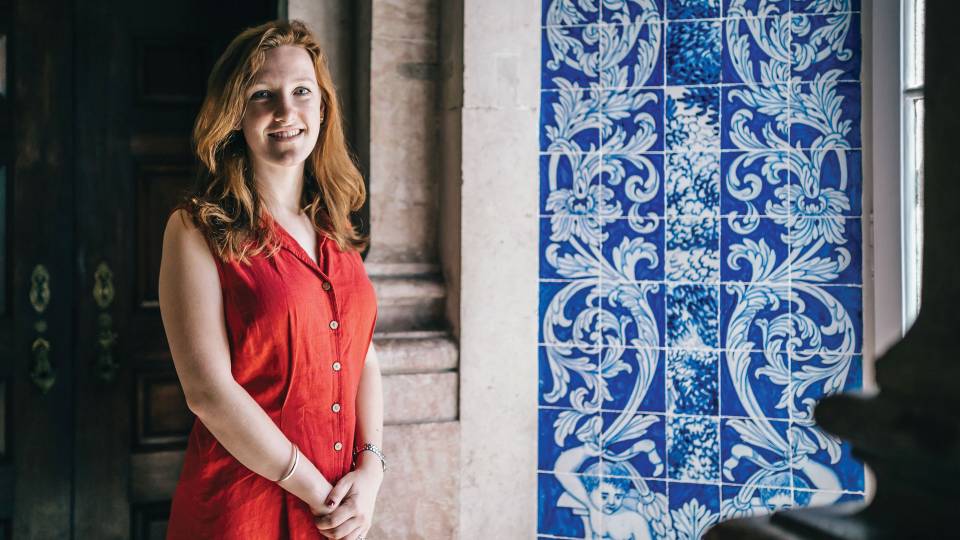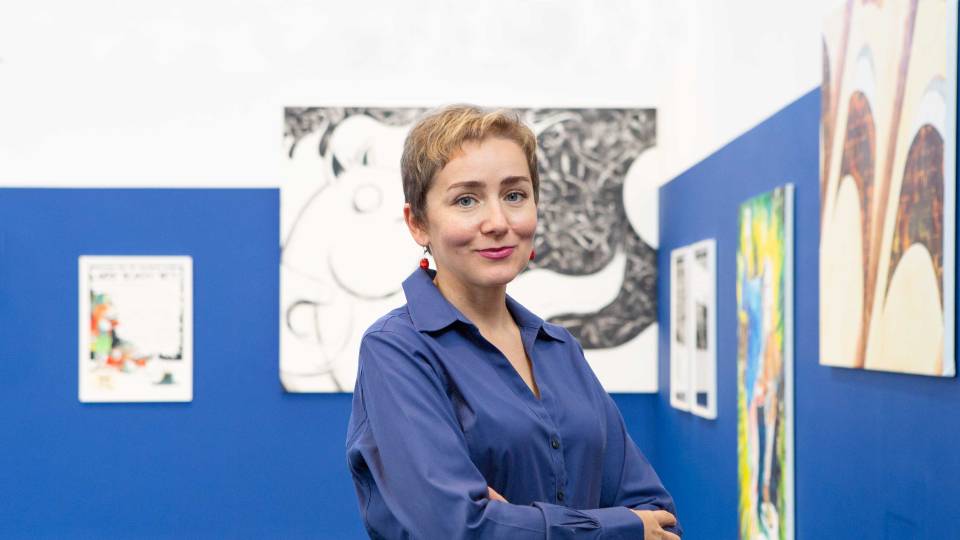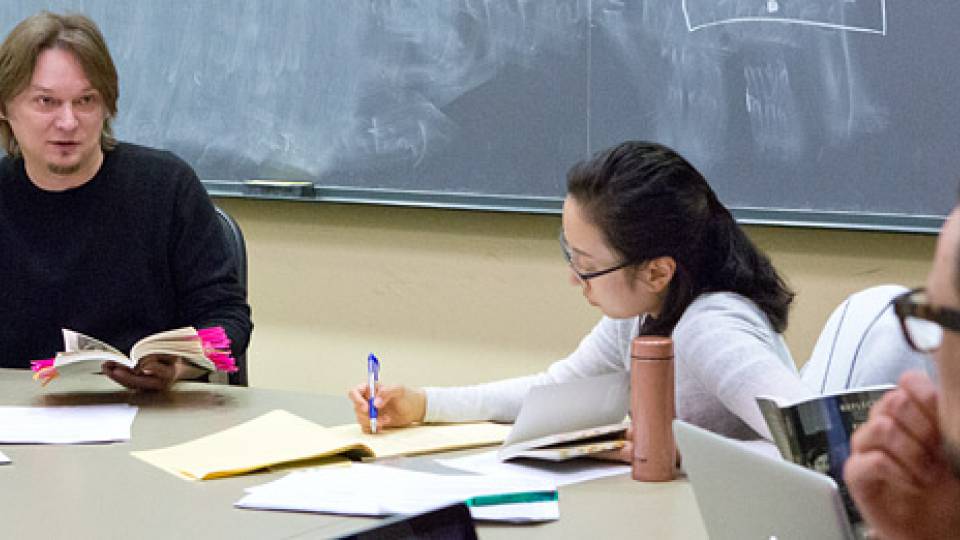Historian Ekaterina Pravilova explores Russia from the 18th century through the 1917 revolutions, sharing in her books and in the classroom her insights and perspectives on the forces that shaped a crucial period of the nation's history.
Pravilova, a professor of history who joined the Princeton University faculty in 2006, published her third book in 2014, "A Public Empire: Property and the Quest for the Common Good in Imperial Russia." The book examines Russian ways of thinking about property and their role in the formation of civil society.
In her teaching of undergraduate and graduate students, Pravilova goes beyond Russian history to examine issues such as the history of property rights around the world. Her seminars also emphasize the tools of historical research and writing, particularly for juniors as they undertake independent work for their junior papers.
"We had high hopes for Ekaterina (Katya) Pravilova when we hired her," said William Jordan, the Dayton-Stockton Professor of History and chair of the history department. "She has more than fulfilled them. Her work tackles big and difficult problems in creative ways. It is solidly based in archival research and is brilliantly framed. When you add to this her sensitivity to the social and political contexts of the issues she studies, one knows one is encountering a genuinely great historian in her work."
Pravilova, a native of Russia, received her Ph.D. from the Russian Academy of Sciences in St. Petersburg in 1997. She was a research scholar at the Russian Academy and an assistant professor of history at the European University at St. Petersburg before coming to Princeton.
The power of property
In the spring of 2014, Pravilova taught a seminar on the history of property that senior history major Azza Cohen said offered her an important new perspective through readings and discussions focused on different times and places — court cases from Early Modern Spain, zoning plans for New York tenements and soldiers searching for stolen Jewish art during World War II.
"The way Professor Pravilova framed the class offered me a new lens through which to study history — how and why property is defined is essential to every time period and every place," Cohen said.
The course also offered valuable preparation for the students' independent work, said senior history major Cara Cavanaugh.
"Professor Pravilova helped me along each step of the way of learning how to write like a historian: from coming up with a topic to entering my paper into competitions and journals for publications," Cavanaugh said. "Because of her patience and thorough explanation of the research process, I felt more than prepared to write my second junior paper and undertake my senior thesis."
Pravilova, who is teaching the junior seminar again this spring, said property makes an ideal subject for students preparing their first independent work.
"Property is a wonderful subject for junior papers — first of all, it is very flexible and versatile," she said. "Almost any aspect of social relations and practices can be discussed in the language of property. Students with interests in the history of medicine or sexuality, urban history or architecture, popular culture or family law can find topics which focus on property."
In her recent book, "A Public Empire," Pravilova highlights the importance of public property in the economic and political development of Russia. Conventional views of Russian history place too much emphasis on the emergence of secure private property, Pravilova said.
"The book shows the importance of 'res publica' — public things, such as publicly owned rivers, forests and historical monuments, icons and manuscripts of deceased writers — for the formation of civil society," Pravilova said. "Freedom can take different forms, it should not be necessarily individualistic. One of the concepts of freedom that evolved in Late Imperial Russia assumed the limitation of personal arbitrariness of private owners in favor of the public."
The themes of the book also resonate in current debates in Russia, Pravilova said, such as whether private or public status does more to protect natural resources and national heritage.
The book has won awards including the George L. Mosse Prize for the "intellectual and cultural history of Europe since 1500" from the American Historical Association; the Wayne S. Vucinich Book Prize for the most important contribution to Russian, Eurasian and East European studies in any discipline of the humanities or social sciences by the Association for Slavic Studies, East European and Eurasian Studies (ASEEES); and the Historia Nova Prize for Best Book on Russian Intellectual and Cultural History.
